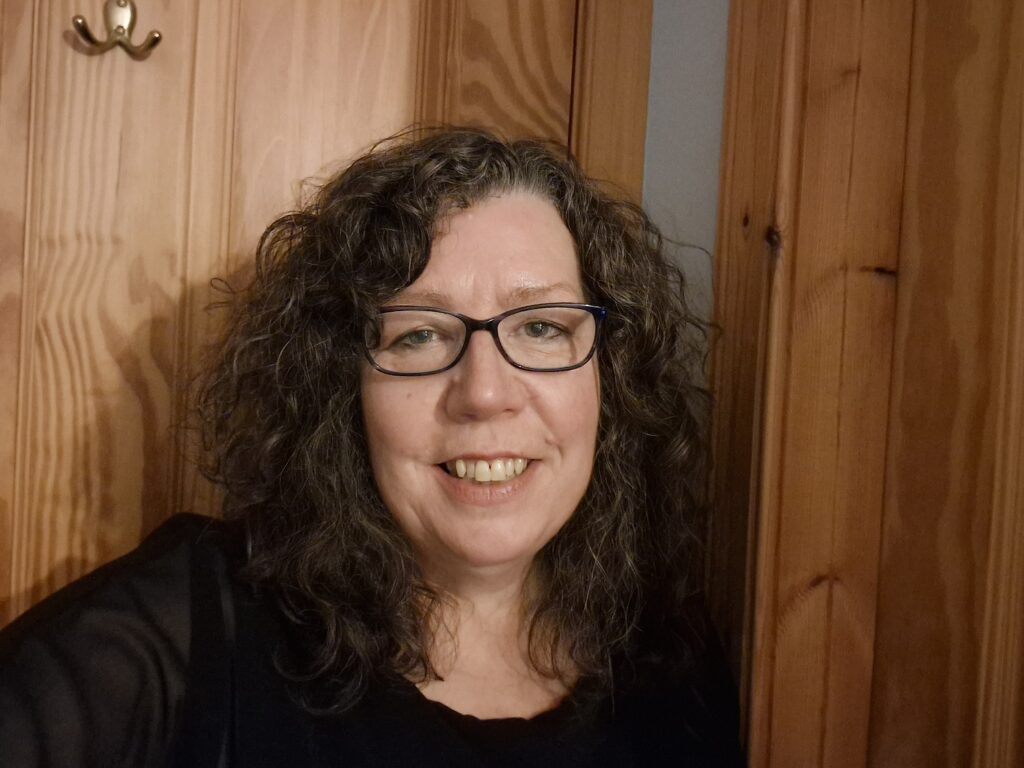
For Volunteer’s Week, we’re celebrating all of our amazing volunteers. From our volunteer fundraisers, office admins, telephone buddies, support group co-ordinators and our helpline volunteers.
So, meet Ann, our helpline volunteer and join us in thanking her by reading her story.
Six years ago, I became a Helpline volunteer. I was happy to find something that would make use of the knowledge I’d gathered throughout my own pituitary journey and to payback some of the help I’d got from the Pituitary Foundation along the way.
It’s been a year since I last wrote about my role. At that time, I was reflecting on what the helpline had been like through the pandemic.
Thankfully things have moved on. Questions about Covid, shielding and vaccines have gone, and the helpline has returned, more or less, to the sort of calls we got pre-pandemic.
I usually do 1 or 2 afternoons a week 1-4pm. An average shift might have 2-3 calls lasting around 15-20 minutes each, but it varies widely. Most days there’s at least one long call, possibly lasting up to an hour. You never know who will call or what they’ll be calling about.
Calls often start with “I don’t know if you can help me…”. The key thing is to listen, encourage them to tell you about their situation and let them know how you might be able to help.
It’s a safe space where people can express their feelings, ask their questions and talk things over with someone who understands not just their condition but also the sort of physical, emotional and psychological challenges that often come along with a pituitary condition.
Calls and Callers
Patients make up the biggest group of callers, but there are also quite a few calls from parents, not just of young children, but also of adult children. I guess we never stop worrying about our children and wanting to support them, no matter their age.
I’ve also had calls from partners, carers, employers, doctors, nurses and even endocrinologists.
In terms of responses to calls, these tend to fall into 3 categories. Specific questions you can answer, calls you can signpost to the most appropriate resources (website information, support groups, buddies, online forums or the Endocrine Nurse), and calls where you need to offer a listening ear – I call this General Chat and Support.
A Typical Shift
On this shift I had 5 calls. 3 related to adrenal insufficiency (AI), probably the most common reason for calling.
A newly diagnosed patient was feeling quite overwhelmed. They appreciated being able to have someone explain the condition and the key things to think about. I directed her to further resources on our website, including our growing number of video presentations and suggested she called our specialist endocrine nurse helpline.
There was also a call from a mother whose child had just been diagnosed with Arginine Vasopressin Deficiency (AVP-D), formerly known as Diabetes Insipidus (DI).
She was coping but feeling a bit isolated. I put her in touch with a buddy in a similar position.
Another call was about entitlement to benefits. I was able to give a steer toward appropriate benefits and suggested she give a call to one of our buddies.
Recent Reflections
Callers who are seeking a diagnosis seem to be looking for more guidance on how to approach their GP or Endocrinologist.
Short appointments that are difficult to come by, and often by phone, mean people want to be well prepared and make the most of them.
On the helpline we can talk things through with the caller beforehand. It can help them clarify their own thoughts so they can provide concise and relevant information and identify their key questions.
Newly diagnosed patients, and their relatives, are often looking for specific information about their condition, tests, surgery or medications. Increasingly I think people are calling and just asking “what help is out there?” It’s good to get the chance to outline what resources and support is available early on.
Hopefully people will be better prepared to manage their condition well and know they can come back to us if they need to. Whilst some newly diagnosed callers are relieved to have a diagnosis after years of unexplained symptoms, others have a sudden diagnosis and can feel quite overwhelmed.
What does the future hold? Even just being able to talk to a fellow patient can provide an instant reassurance.
When I first started on the Helpline, I was surprised that patients who have been diagnosed for a while still make up a fair share of calls.
That reflects the lifelong nature of many pituitary conditions, the complexity in managing them and the psychological and emotional impact that can be felt.
Over the years I have learnt a great deal from experienced members of the community. Now I find myself using that information and insight in other calls.
And Finally…
Whilst people may phone with a specific query, they often start talking about their condition more generally and we end up helping them in ways they maybe hadn’t thought about previously. So, if you’re thinking “I don’t know if you can help…” please do give us a call. We can help you.
Interested in Volunteering?
If you’re reading this and have become intrigued by the idea of volunteering with us, we invite you to sign up for our mailing list. By doing so, you’ll be the first to receive updates about new volunteering opportunities at The Pituitary Foundation. We would be thrilled to welcome you to our amazing team!







